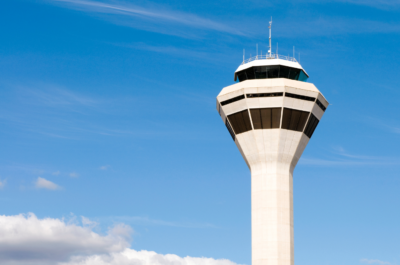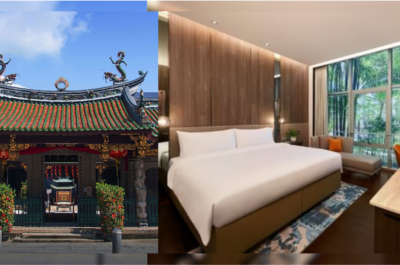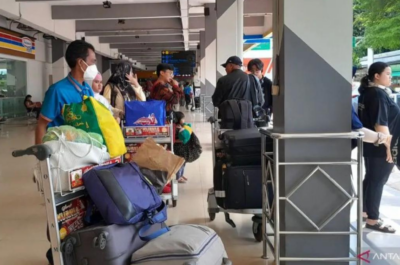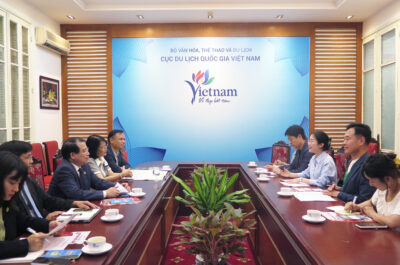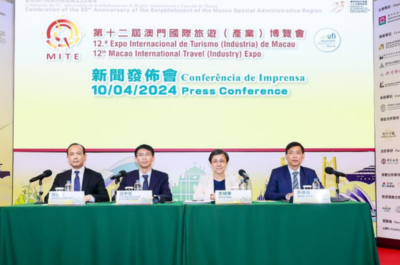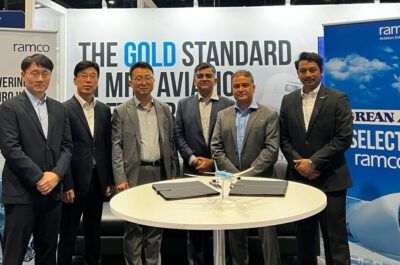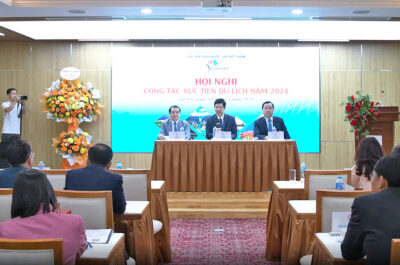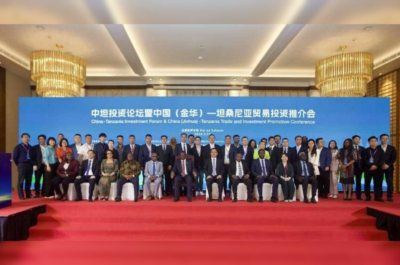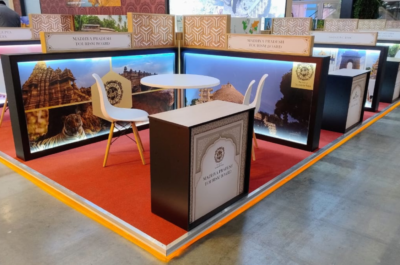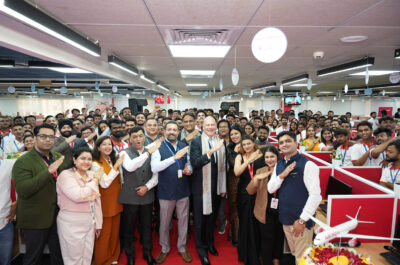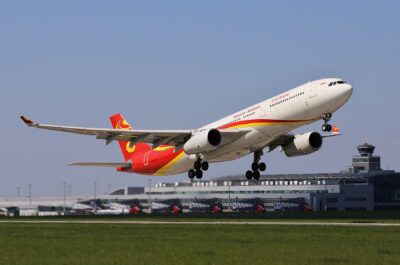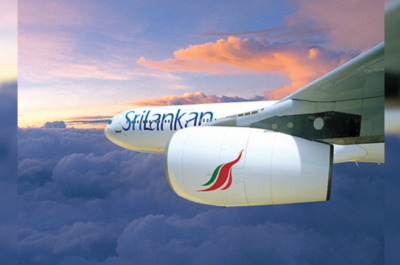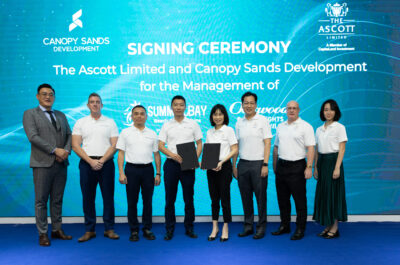…
Provided by China Traveldaily Priceline.com has focused on its operations in China by supporting its existing customer demand to and from the Chinese market through its Booking.com brand and, since its acquisition by Priceline.com in 2007, Agoda.
Priceline.com has focused on its operations in China by supporting its existing customer demand to and from the Chinese market through its Booking.com brand and, since its acquisition by Priceline.com in 2007, Agoda.
Supporting these two brands in the Chinese market based on serving our customers needs remains our immediate priority, says Adrian Currie, Chairman of Agoda.
Currie spoke to China TravelDaily’s correspondent Hriday Malik about market in China. Currie’s comments:
Malik: What surprises you most when you look at the Chinese market? How is it different from other markets in Asia?
Currie: I think the current online travel market in China and market potential are reasonably well reported. Ctrip and eLong have developed solid domestic operations and a number of multinational companies, such as priceline.com, and its wholly-owned subsidiaries Agoda and Booking.com, have developed good positions in Chinese destinations popular with international tourists. The current challenges in China of developing technology infrastructure, increasing Internet usage, broadening credit card usage and providing alternative payment mechanisms, and driving ecommerce adoption over the medium term should all be overcome. Perhaps the biggest surprise to me continues to be just how big the market opportunity for inbound and outbound travel will be for China over the coming decade.
Malik: While early participation is usually helpful for success, Priceline’s track record in Europe, where it was not an early entrant, shows that one can be a late entrant and still be very successful. How do you assess the situation today in China? Do you think the fact in China, the great majority of so-called online transactions are actually being done in call centres or credit card penetration being low is a major concern for a company like yours?
Currie: I believe entering a market by supporting your existing customer demand and marketing competences is more important than entering “early” or “late”. Certainly, in Europe priceline.com was not a significant player until it made two acquisitions during 2004/05. Now, Booking.com (our European brand) is the largest online hotel reservation service in Europe and priceline.com is the 2nd largest online seller of hotel rooms globally.
Booking.com has established that position by building a comprehensive supplier network, a broad advertising and affiliate distribution network, and extensive local language translation and call centre support on the back of increasing Internet usage, ecommerce adoption and credit card penetration.
Today, in Asia we are seeing similar early success and aim to develop a sizeable business for Agoda and Booking.com both inside China and by building our Asian travel business outside China over the next decade.
Malik: Bookings on Priceline’s international operations increased 80 percent in the second quarter. How are you gearing up for expansion in China?
Currie: Priceline.com is expanding in China through its Agoda and Booking.com hotel websites. Both brands are expanding the number of hotel partners they market in China, increasing local sales personnel to support this growth and developing affiliate partnerships to provide increased visibility for their online hotel reservation products. Through meeting the needs of our existing customers and increased levels of marketing spend we expect Agoda (using the merchant model) and Booking.com (using the agency model) to grow organically in China over the coming years.
Malik: How has Agoda fared of late? What have been key milestones and are they in any way resulting in tapping China as a source market or for inbound?
Currie: The Agoda brand was launched towards the end of 2005 and its operations have expanded each year since then, particularly with local sales support offices opening outside our main offices in Singapore and Bangkok. Today, we have over 300 employees across Asia, including representatives working with hotel suppliers in Beijing, Shanghai and Guangzhou. Agoda’s focus continues to be on marketing Asia-based hotels to a global, online audience. In the 12 months ended 30 September 2008 over US$ 100 million of hotel bookings were made on the Agoda website.
Today, Agoda markets over 2,500 hotel partners based in China and in the last year visitors from over 50 countries have used Agoda.com to book their stay at a hotel in China. Also, with the Agoda website translated in Traditional and Simplified Chinese, we have enabled Chinese residents to organize their hotel stays in more than 50 countries outside China over the last year. I expect these trends to continue.
Malik: In September last year, Agoda partnered with DerbySoft. How do you think hotel properties in China are using such technology to better automate the distribution process? What still are the major challenges in this market when it comes to automating the process?
Currie: The Derbysoft relationship has enabled Agoda to work with hotels that are more familiar with using online marketing channels and provided Derbysoft with another growing, marketing channel for its hotel partners to be promoted on.
Similar to the development of online marketing of hotels in Western economies, the large global brands and international chains have begun to use technology to promote their hotels through their own website, work closely with websites such as Agoda, and distribute their content through online channels. Independent hotels have been slower to adopt these trends but are increasing their use of the Internet as a marketing channel.
Major challenges include developing technology to support online growth, maintaining rate parity across all marketing channels and yield management in periods of higher/lower occupancy levels. Agoda’s extranet-based “Yield Control System” helps hotels to overcome these challenges.
Malik: How do you think relatively high-margin travel products are being bought online in China currently? Do you think its still vanilla products and high operating costs which are prevalent in the business or do you think the pure online model has show signs of getting clicked in China?
Currie: The trend to the online model continues every day particularly to sites such as Agoda that offers a comprehensive choice of hotels across star ratings and price categories, great prices, special offers and loyalty rewards, comprehensive descriptions, maps, photos and guest feedback, and an easy-to-use site supported by multi-lingual 24/7 support. For hotels, the opportunity to diversify away from higher cost tour operator channels to online travel agents is also a positive trend.
Malik: There is a growing trend pertaining to a group of travelers in the higher social demographic segment breaking away from the conventional packaged tours, opting instead for free and easy travel. Do you think this is going to drive online travel market in China?
Currie: Yes, this is a trend that is being seen. The Internet empowers individuals and families to personalize their leisure trips to their own needs and not be bound by packaged tours. Flights, hotels and car hire can all be booked online; destinations, accommodation and dining can all be researched online (for example, the hotel reviews published by Agoda from guests who recently stayed in hotels booked through Agoda); and visa requirements and medical advice are published online. So travelers are able to research, book and provide feedback on trips in real time using the Internet. These trends for empowerment, flexibility and networking will continue to develop in the travel industry.
TravelDailyNews Asia-Pacific editorial team has an experience of over 35 years in B2B travel journalism as well as in tourism & hospitality marketing and communications.





















